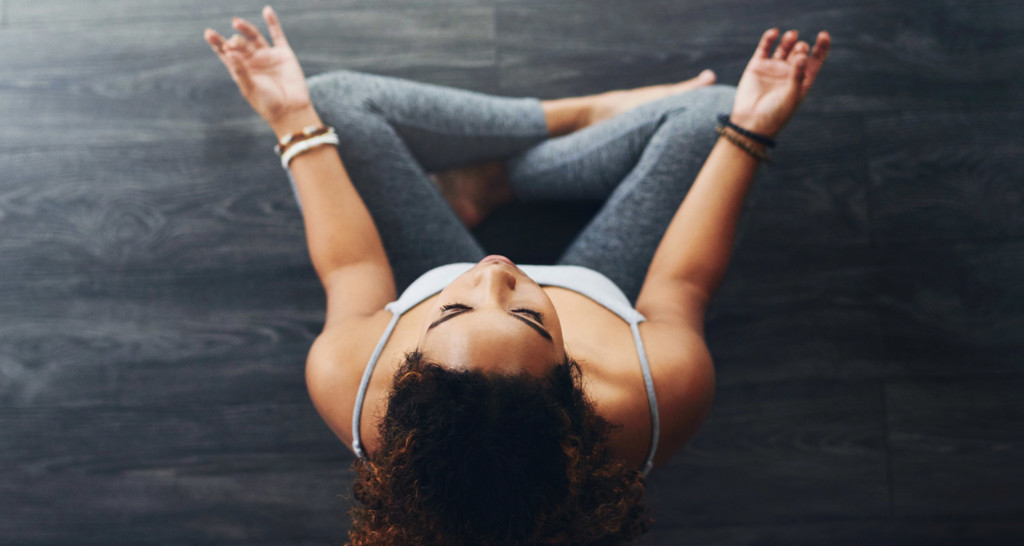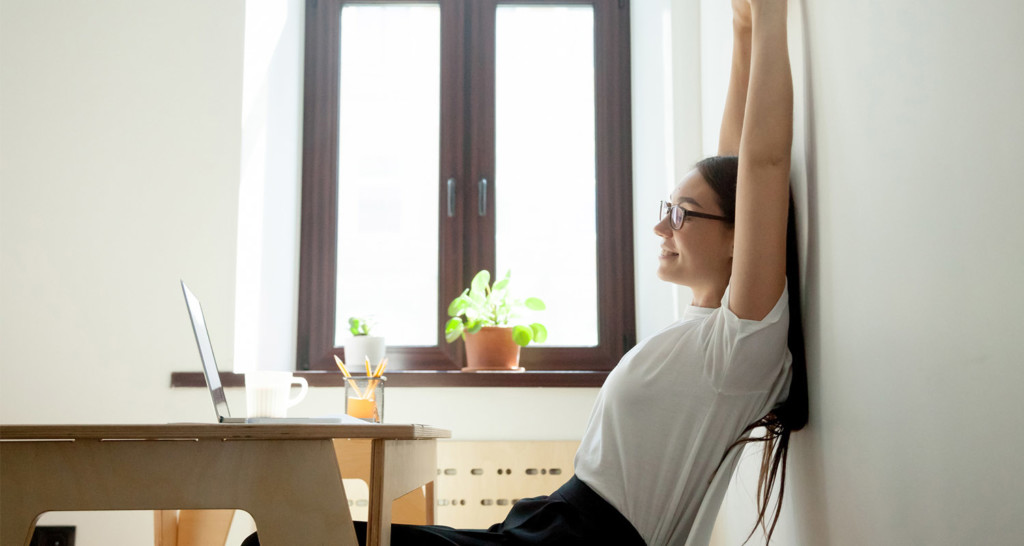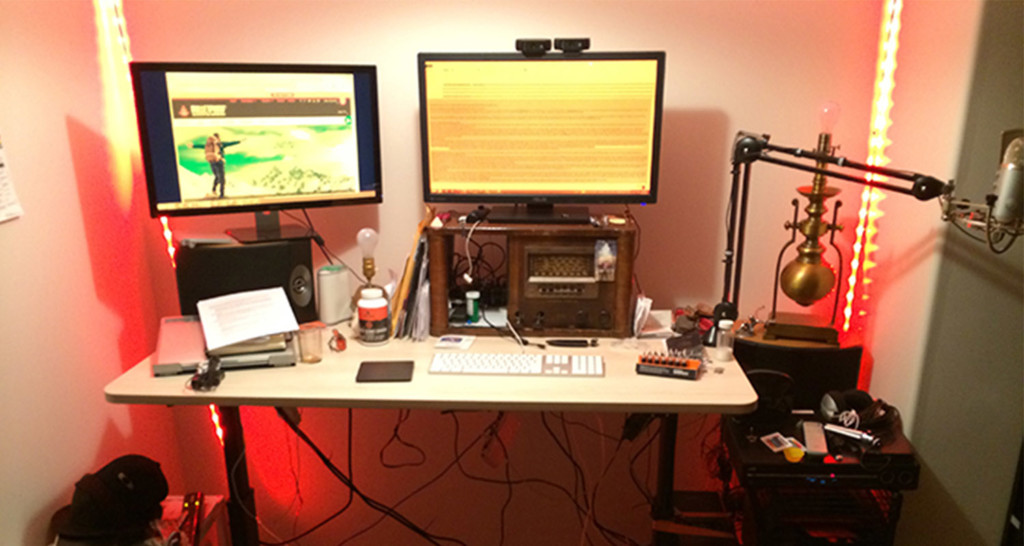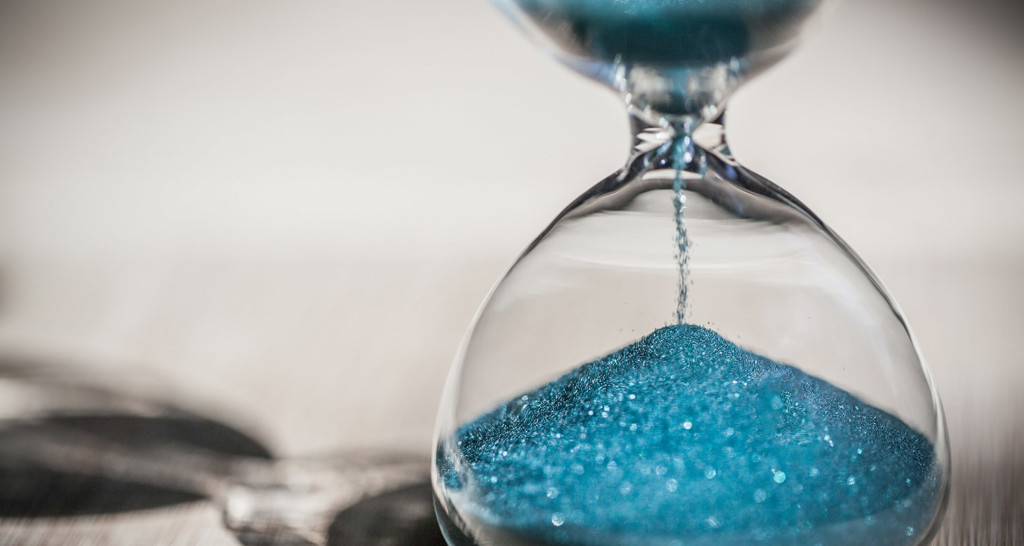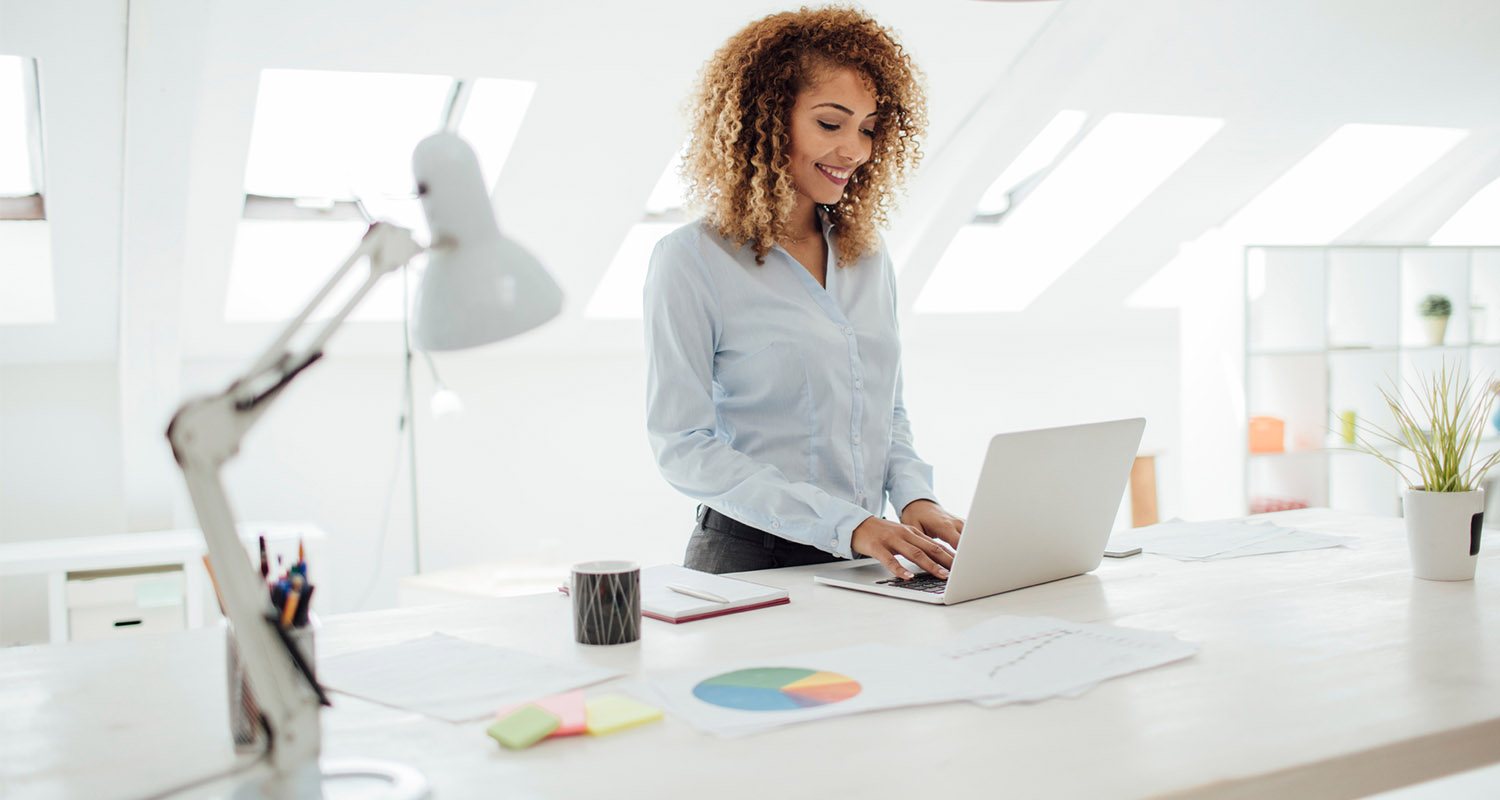
[tldr]
- The average person spends 90,000 hours of their life working.
- You can biohack your way to a better, more productive workday.
- Your body doesn’t stop working when your shift ends. Your brain keeps running long after you’ve fired off your last email. To maximize office productivity, you need to maximize yourself.
- Want to enhance your focus and power through your workday feeling relaxed, balanced, and full of energy? Keep reading.
[/tldr]
Biohacking is the art of becoming superhuman and finding ways to take full control of your body and life. That’s what being Bulletproof is all about: optimizing your performance so you can get stronger, think faster, and live smarter.
You can (and should) bring these upgrades into your job. The average person spends 90,000 hours of their life working.[ref url=”https://www2.deloitte.com/content/dam/Deloitte/uk/Documents/public-sector/deloitte-uk-workplace-mental-health-n-wellbeing.pdf”] And no matter how Bulletproof your body and mind are, no matter how adept you’ve become at traveling to the furthest corners of your mind to mine its creativity, passion, and ideas, you still have to park your butt somewhere to pay the bills.
Want to enhance your focus, gain the ability to concentrate for long periods of time, and power through your workday feeling relaxed, balanced, and full of energy? Keep reading.
Why you should hack your workday, not just your office
You’ve probably seen articles online about how to optimize your office space for better productivity. That’s not the best use of your time. You can tape up all the motivational posters you want, but if you’re eating inflammatory foods all day and sitting for hours at a time, you’re setting yourself up for failure.
You’ll get a better return on your investment if you look at the big picture. Hacking your workday really means finding ways to be more productive, focused, and engaged for every task and every interaction. That’s why I’m recommending more than just a standing desk.
To really become the best possible version of your professional self, you need to take active steps to set yourself up for success from the moment you wake up to the second your head hits the pillow at the end of the day.
Your body doesn’t stop working when your shift ends. Your brain keeps running long after you’ve fired off your last email. To maximize office productivity, you need to maximize yourself.
Here’s how you can kick more ass at work — the Bulletproof way.
The biohacker’s guide to conquering the 9-to-5
Food
You can’t maximize your potential if you’re starting your day with foods that sap your focus and cause brain fog. So-called “breakfast” foods like bagels, cereal, and yogurt can mess with your blood sugar levels, spike hunger cravings, and contribute to the dreaded mid-afternoon slump. No thanks.
Want to start your day with a clear head and enough fuel to last you until lunch? Skip breakfast.
Intermittent fasting (IF) improves learning and memory, and it strengthens your body on the cellular level.[ref url=”https://www.ncbi.nlm.nih.gov/pmc/articles/PMC2633586/”][ref url=”https://www.cell.com/cell-metabolism/fulltext/S1550-4131(17)30612-5″] When you take an extended break between meals (think 12 to 18 hours), your cells start to clean shop. They eliminate waste products that build up during regular cellular processes via a process called autophagy.
Related: Forget Juice Cleanses. Autophagy Is the Real Way to Detox Your Body
With IF, you support your brain health and increase your energy — both important parts of kicking ass at work. Worried about getting cranky? On the Bulletproof Diet, you start your day with a cup of Bulletproof Coffee. That’s grass-fed butter (or ghee), Brain Octane Oil, and high-quality coffee beans, blended together into a mix of creamy, frothy goodness.
The fats keep you full and fuel up your brain, and you’ll still be able to enjoy the benefits of IF until lunchtime. (Learn more about the benefits of butter coffee.) Then, break your fast with a high-fat, low-carb lunch with satisfying ingredients like grass-fed beef and organic green vegetables. Your to-do list will thank you.
Meditation
Whether you meditate in the morning, on your lunch break, or after work, meditation can increase your ability to focus on your tasks and resist distractions — like email notifications and noisy coworkers.
I like to start my day by putting myself in an advanced meditative state with a program I’ve developed called 40 Years of Zen. You don’t have to do anything fancy to incorporate meditation into your day. Even five minutes of daily practice can help you reap its benefits, including reduced anxiety, increased concentration, and better creativity.[ref url=”https://onlinelibrary.wiley.com/doi/abs/10.1002/da.21964″][ref url=”https://www.ncbi.nlm.nih.gov/pmc/articles/PMC1361002/”][ref url=”https://www.frontiersin.org/articles/10.3389/fpsyg.2012.00116/full”] Get started with this guided meditation by Barry Morguelan, MD, from an episode of the Bulletproof Radio podcast.
One benefit to starting your day with meditation is that it will help wake up your body and mind with meaningful reflection. That’s way more productive than reaching for your phone and scrolling through notifications and text messages first thing in the morning. By the time you start work, you’ll feel calm and focused.
Supplements
Supplements can give your mind and body a big boost by fixing nutrient imbalances. That’s why they’re an essential part of any biohacker’s toolkit. Depending on what you need, supplements can stabilize your mood, improve your focus, and help you sleep better, which will boost your performance at work.
Before you start taking supplements, I always recommend getting rid of the things in your life that lead to brain fog — like processed sugar, inflammatory gluten, and mold toxins. Then, clean up your diet. Supplements won’t fix the damage done by donuts and pizza.
Related: Upgrade Your Energy, Optimize Your Supplements
Nootropics (also known as smart drugs) can also give you an extra edge during your workday. I’ve been actively benefiting from nootropics since 1997, and I’ve used that time to find the smart drugs that work for me in the dosages that make a difference in my day. You might have to try a few different supplements to find the results you want.
I helped formulate NeuroMaster when I learned about the benefits of coffee fruit extract. This supplement increases your levels of brain-derived neurotrophic factor (BDNF), which helps create new neurons and increase neuroplasticity. The result: better memory and focus. Take 1 capsule in the morning with or without food. For more smart drug recommendations, check out my guide to nootropics to unlock your true brain.
Movement
Humans aren’t built to sit still for hours on end. Your brain gets tired. Your joints get stiff and creaky. You end up with chronic pain, impaired focus, or even anxiety and depression. So, why are you sitting all day at the office?
I spent way too much of my life sitting at work. In my mid-20s, I had ulnar nerve inflammation (like carpal tunnel) so bad that I had to wear a wrist brace all day long on both wrists. Physical therapy at Stanford barely helped, but it did encourage me to experiment with my first standing desk in 1997. I’ve used them on and off ever since.
Excessive sitting can lead to heinous posture (the longer you sit, the more likely you are to hunch over), which messes up your shoulders, neck, and lower back. That leads to a less responsive and effective nervous system (a nervous system that regulates literally everything!). It restricts the flow of blood and lymphatic fluid. Too much sitting can lead to a deep vein blood clot, which can kill you. It can cause weight gain and constipation. The list goes on and on — like smoking, it can negatively affect just about every system in the body.
The solution: move. In 2014, a Swedish researched named Elan Ekblom-Back published a ton of research about the ways non-exercise physical activity (NEPA) is important for healthier insulin, glucose, and fibrinogen levels.[ref url=”https://www.ncbi.nlm.nih.gov/pubmed/24167194″] In other words, movement is good, even if it isn’t technically exercise. That’s why I like to mix it up while I work by standing, sitting, and taking walking breaks.
Here’s what you can do:
- Try an adjustable standing desk: I like the StandDesk. Make sure you see a functional movement specialist to verify you’re standing correctly. Standing all day isn’t a good idea if your knees or hips are going to take a beating because you stand wrong. (Mine did!)
- Vibrate: I have a Bulletproof® Vibe Whole Body Vibration Plate about five feet from my desk, and I’ll stand on that for five minutes or so just to get the lymphatic circulation going. Sometimes, I’ll do a couple of stretches or yoga poses on it. I’ve found that occasional whole-body vibration, even if I just do it once a day or once every other day, is enough to keep my skeleton and my body feeling good as long as I stand some of the time I’m working and I get fresh air.
- Change your perspective: Take a walk. Fresh air is good for you. If you’re in an office with windows that don’t open, step outside. You can also take some time to lie down (maybe on the Sleep Induction Mat?) to relax, encourage good circulation, and restore your energy.
Anything that increases your circulation is a good idea. One member of the team at Bulletproof uses a treadmill at her standing desk while she’s working. What matters most is that you find something that makes you feel good — whether it’s a walk with a coworker, yoga poses in the break room, or a few leg stretches at your standing desk — so you can focus on being your best, most productive self, not a stiff, crunched-up pill bug.
Ergonomics
I got into ergonomics because wearing two wrist braces got to be just too annoying, and I found just raising my monitors made a big difference in how my neck felt. (Note in the picture below that my monitors sit on an antique radio, which houses my hard drives.)
When you’re sitting or standing, maintaining correct posture will help protect your back, promote optimal nervous system function, and reduce stress on your neck and shoulders. I use a high-end office chair with ergonomic support from Steelcase, although there are many good ones.
Here’s how you can tell if your chair is ergonomic:
- It mimics the curves of your spine
- It is set at a height where your feet sit flat on the ground
- Your thighs should be parallel to the floor, creating a 90-degree angle to your hips
- You also want a 90-degree angle at your elbows to keep your arms level with your keyboard
- Your head should be in a neutral position — my PC monitors are positioned just below eye level so I can look at them without having to tilt my head up or down.
I don’t allow armrests on my chair because they tend to put pressure on the ulnar nerve (one of the three main nerves in the arm) and encourage bad posture and leaning. I also taught myself to be a left-handed mouser, even though I’m right-handed, because I want a neurological balance and I don’t want to get carpal tunnel in my right arm from excessive use. It takes about a week.
Whether I’m sitting or standing, I sometimes rest my feet on a Bulletproof Sleep Induction Mat, which stimulates acupressure points on the bottom of my feet. It makes me feel invigorated — and it unexpectedly toughened my feet so that I’m comfortable walking barefoot over terrain that was too painful for my entire life.
Schedule
Breaking news: The 9-to-5 workday isn’t realistic. It forces people to do their work in a specific chunk of time without considering what time of day they’re most productive. Biohackers want to work hard and play hard with maximum results, which means understanding how to schedule your day, stay on task, and manage your distractions.
Here’s how you can do that:
- Take breaks: Set a timer to remind yourself to clear your head and move your body. Try the Pomodoro technique: 25 minutes of focused work, followed by a short break.
- Listen to your body: Do your most important tasks when are you feel most alert, alive, and focused. Morning, afternoon, evening, whenever — if it’s important and needs your absolute focus, get it done when you feel most engaged.
- Avoid multitasking: It’s distracting, and it’s stressful. Stress weakens your immune system, shortens your lifespan, and makes you fat.[ref url=”https://www.ncbi.nlm.nih.gov/pubmed/2186751″][ref url=”https://www.ncbi.nlm.nih.gov/pubmed/22169588″][ref url=”https://www.hopkinsmedicine.org/news/media/releases/evening_hours_may_pose_higher_risk_for_overeating_especially_when_under_stress_study_finds”] Just focus on one task at a time, breaking down larger projects into smaller pieces that you can check off as you go.
- Limit decision fatigue: I have an executive assistant for this exact reason. Making decisions one after another can contribute to decision fatigue. By the end of the day, you feel sapped of energy and focus — definitely not Bulletproof.[ref url=”https://www.researchgate.net/profile/Jean_Twenge/publication/237738528_Decision_Fatigue_Exhausts_Self-Regulatory_Resources_-_But_So_Does_Accommodating_to_Unchosen_Alternatives/links/554b9ee40cf21ed21359ccbd/Decision-Fatigue-Exhausts-Self-Regulatory-Resources-But-So-Does-Accommodating-to-Unchosen-Alternatives.pdf”] Fix it by planning out your week (think to-do lists, clarifying priorities, and setting your personal goals) so you know where to put your mental energy. Eliminate or delegate the tasks that bring you down.
Related: 5 Hacks for Extraordinary Productivity
Noise
There’s a lot to be said for the benefits of finding your auditory sweet spot. Some studies say that people work better in silence.[ref url=”https://behavioralandbrainfunctions.biomedcentral.com/articles/10.1186/1744-9081-6-55″] Others say that some ambient background noise can spark creativity.[ref url=”http://www.acrwebsite.org/volumes/15776/volumes/v38/NA-38″][ref url=”https://www.jstor.org/stable/10.1086/665048?seq=1&version=meter+at+2&module=meter-Links&pgtype=Blogs&mediaId=%25%25ADID%25%25&priority=true&action=click&contentCollection=meter-links-click#metadata_info_tab_contents”]
Unfortunately, sound is usually out of your control at work. Your best bet is to try a few different combinations of sounds — total silence with noise canceling headphones, ambient background sound, and music — and take note of whatever helps you reach your flow state. Here are some great resources to get started:
- Coffitivity for ambient cafe sounds
- Brain.fm for music to improve focus, meditation, and sleep
- Binaural beats to induce specific brain states (Try the Binaural Beats by Bulletproof playlist on Spotify)
Related: 5 Fast Hacks to Improve Focus and Concentration
Go outside
Find a way to experience the beauty of the world around you during your day. It’s a no-brainer that spending time in nature has a positive effect on health and mood, but if you’re a skeptic, there are a lot of studies that prove it.[ref url=”https://academic.oup.com/heapro/article/21/1/45/646436″]
Getting out in or near nature, even just for a few minutes, can help you clear your mind and open up some space for inspiration — you might find that new solutions to overcome a challenge or fresh insight comes to you once you’ve taken that time to be still.
I’m grateful to live in a rural area (Vancouver Island, Canada) where it’s possible to have a view of the ocean, forest, and an island right out my home office, even though I’m close to an airport. Even in an urban environment, there’s usually some way to connect with nature — trees, flowers, plants, or some type of water, whether it’s a nearby river or just a fountain.
Taking time to relax, empty your mind, and appreciate what’s right in front of you is also part of being Bulletproof.
Go to sleep
It’s the end of the workday. You’ve tackled your to-do list, you’ve eaten high-fat, low-carb foods that made you feel great, and you’re ready to relax at home before you clock in the next day.
With a few extra steps, you can set yourself up for an even better workday by getting a good night’s sleep.
Quality shut-eye is one of the most important ways to improve your brain function, longevity, and overall performance. Sleep increase your ability to gain new insight into complex problems, and it plays a role in every aspect of your body like hormone regulation, blood pressure, and mental health.[ref url=”https://www.ncbi.nlm.nih.gov/pubmed/14737168?dopt=Abstract#”][ref url=”https://newsinhealth.nih.gov/2013/04/benefits-slumber”] Sleep is so important for your overall wellness that I wrote an entire series on sleep hacking on the Bulletproof Blog.
Here are the most basic steps you can take you improve your sleep quality:
- Stop drinking caffeine at least 8 hours before you go to sleep
- If you work out in the evening, don’t exercise within 2 hours of bedtime
- Use software like f.lux to limit blue light exposure, which messes with your melatonin levels
- Two hours before bedtime, limit your screen time and dim any bright lights
- Sleep in a pitch-black room — no blue light from electronics, and use blackout curtains to limit light pollution
Related: How to Hack Your Sleep: The Art and Science of Sleeping
Biohacking your workday isn’t as simple as eating an organic strawberry once in a blue moon. You have to take a holistic look at your habits, diet, and routines in order to become the most optimized version of yourself at work and at home.
Sitting and staring at a cubicle wall for 90,000 hours of your life simply isn’t the best way to expand your limits. Get up, stretch, and eat some grass-fed butter. Your mind and body will thank you.

